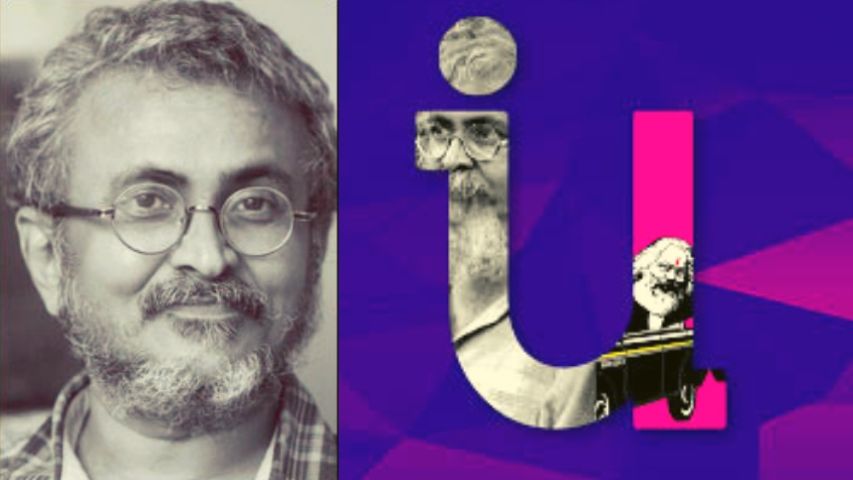A materialistic western society is taken up by Mary Kondo, who teaches them how to unclutter and simplify their lives. The idea is not new; almost every religion—Buddhism in particular—teaches the value of simplicity and contentment.
Manoj Shah’s Gujarati play, Kaagdo (Crow) is about a man (Jay Upadhyay), who personifies the teaching of Zen Master Roshi, and is happy with the little he has; moreover, he does not even seek more. Another bit of inspiration to playwright Gita Manek comes from the Gujarati fable, Anandi Kaagdo (Happy Crow), the bird is not fazed by all the agonies the king piles on him, and does not cease to caw happily.
In the first act, the man’s daughter (Unnati Gala), a hotshot IT professional is exasperated by his deliberately uncomfortable lifestyle in one room of a suburban chawl, his second class train travel to his place of work, and his absolute refusal to upgrade, even though the she earns a high salary.

The stage is suitably bare, with just a bed and a chair, and a kind of installation with bulbs as a backdrop, In the second act, the chair is placed on the bed, so fashion a witness stand, where a lawyer (played by the same actress) interrogates him, because he has been sued—presumably by a society of grouches-- for being happy all the time. The unseen jury, which could be the audience, is made up of the cream of society, and they want to discover the secret of the man’s relentless cheerfulness.
It is a matter of perception, the play says, if a man is not discomfited by his condition, who is anyone else to decide for him that he ought to be miserable? The man—a widower-- looks at life in a chawl as socially enriching, the four-floor climb with buckets of water is akin to exercise. Instead of peering into a smartphone, like so many people, he prefers to engage with real life. A walk by the sea is more pleasurable that watching television.
He works at a menial job in hospital, and sees it as an opportunity to help people in distress. The increasingly exasperated lawyer simply cannot crack his composure or get him to admit that he even had a moment of unhappiness of dissatisfaction in his life.
The play is amusing but also simplistic, equating contentment with happiness, when the two may not always be interchangeable. Still, the character played by Upadhyay with a charming insouciance does give the audience something to think about after the show. Have our lives been reduced to collecting needless possessions, and wanting more, because we have been made to believe that is the route to happiness, when all it causes is stress and discontent?
Will cutting down on consumption really be an end of capitalism and civilization as we know it?
Kaagdo may not have the formula for everlasting happiness, but while it lasts, it does spark joy.
Mary Kondo would approve.





-173X130.jpg)

-173X130.jpg)
-173X130.jpg)

-173X130.jpg)
-173X130.jpg)
-173X130.jpg)